Sustainability at the University of Florence
ITA | ENG
As indicated in the Strategic Plan 2022-2024, the University of Florence is committed to achieving objectives of economic and financial sustainability. Of particular importance in Unifi's work in this field are: welfare and well-being, culture of transparency and legality, inclusion and diversity policies, environmental and social sustainability.
Within the sustainability programme of the University of Florence, the entire academic community and all institutional branches are involved: Education, Research, Third Mission and Internationalisation. In addition, the University of Florence intends to play a guiding, stimulating and supportive role in promoting dialogue and collaboration with the institutions, economic realities and associations in the area; it integrates its missions with the care activities of the Careggi and Meyer paediatric hospital.
Green Office

The Green Office (GO) is a technical structure staffed by the General Management envisaged by the 2017-2019 Integrated Plan in line with the strategic objective.
It is responsible for collecting data, monitoring projects, coordinating executive aspects in the various areas of sustainability such as:
- energy saving and energy production
- waste management and reduction
- rational use of water and other material resources
- agricultural and green management
- city mobility and other actions
- research, training and active citizenship.
Among its missions, the GO also includes informing, raising awareness and actively involving the academic community on issues of sustainable development, as well as drawing up the University's Sustainability Plan and Sustainability Report.
The activities of the Green Office are coordinated by Gabriele Gentilini and Marisa Santioli
Office location and contact details
Piazza San Marco, 4
Tel. 055 2757604
Email: green.office(AT)unifi.it
ateneosostenibile(AT)unifi.it
Facebook(AT)UnifiSostenibile
Collaborations

The University of Florence is part of, collaborates with other Italian and foreign universities, research institutes and companies committed to environmental sustainability and social responsibility.
Through this network, the university daily develops skills that benefit the students of the University of Florence and society as a whole.
- European School of Sustainability Science and Research (ESSSR)
- La Rete Universitaria per lo Sviluppo Sostenibile (RUS)
- Alleanza Italiana per lo Sviluppo Sostenibile (ASVIS)
- Università Europea per il Benessere (EUniWell)
- European University Alliance
- New European Bauhaus (NEB)
- Centri Nazionali per la ricerca (PNRR)
- National Technological Clusters and international partnerships
What we do
Accessibility

The scope of accessibility is very broad and certainly does not end with the elimination of architectural barriers (physical and sense-perceptive) covered by the regulations.
Accessibility is about improving the person-environment relationship, social inclusion and the quality of living.
Accessibility does not only concern people with disabilities and their families, but encompasses every person as a character with specific needs, aspirations, abilities, aptitudes that the environment can facilitate or hinder. The accessibility of places, goods and services is achieved through ad-hoc projects based on the centrality of people and not through the simple application of rules and regulations.
This dimension of accessibility is particularly evident when working on cultural, architectural or landscape heritage.
If, in general terms, determining the regulatory conformity of a place, good or service does not present any particular problems, things change when trying to define their degree of accessibility. This is because accessibility, like all cultural constructs, is a process, not a product; it is a goal to strive for, not a once-and-for-all given.
Moreover, accessibility must be thought of as a system of mutually related requirements: accessibility, mobility, comfort, safety of use, communicativeness, management, etc.
For more details: Accessibilità
Water

The rational use of water as well as reducing the consumption of plastic bottles are two important sustainable development objectives that the University of Florence has set as priorities.
Unifi has launched a campaign to raise awareness among students and staff by encouraging them to use water bottles (before the pandemic, 20,000 aluminium flasks in various colours with the Unifi logo were distributed free of charge) and to supply water through the water fountaindistributed in the various buildings.
For more details: Water
Climate Changes
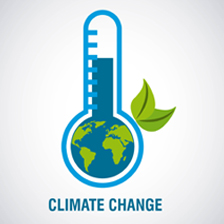
Climate, both on a global and regional scale, is changing as human activities alter the composition of the atmosphere.
Climate change is affecting natural and man-made systems. Projections of future scenarios indicate that these impacts will tend to increase, especially if greenhouse gas emissions continue to grow unchecked.
The university's activities to avoid, or reduce, the impacts of climate change and to minimise negative effects (planning, adaptation strategies) are multifaceted, transdisciplinary and cut across various aspects of sustainability and economic and social areas of interest, etc.
For more details: Climate Changes
Food

The Green Office raised awareness of reducing the use of disposable plastic cutlery and crockery in university canteens, which led to the use of metal cutlery in the university canteen.
In addition promoted the acceptance of sustainable catering using non-disposable or at least compostable containers, crockery, cutlery and glasses.
The canteen service is managed by the DSU, which has adopted a plan to reduce the impact of food and food waste.
For more details: Food
Building
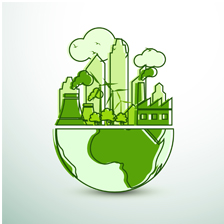
The university's buildings were built in different historical periods in terms of technology and the focus on sustainability as we have today. This therefore places obvious limits on intervention in historic buildings.
On the other hand, as far as new buildings are concerned, starting from the design phase the University operates with respect to the requirements of saving consumption as well as safety, wellbeing, accessibility, appearance, environmental protection with particular attention to materials, energy, water and health.
There are many actions undertaken by the university (sustainable blackboards etc.) and others planned for the future.
For more details: Building
Energy
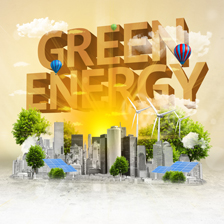
At a time when the topic of global warming, its related environmental implications and the crisis triggered by the war in Ukraine are at the centre of common attention, one hears more and more often about concepts such as energy efficiency and energy saving.
Reducing energy consumption, especially as long as its production is not effectively dependent on renewable sources, is one of the essential strategies to effectively counteract the excess emission of greenhouse gases into the atmosphere.
One of the goals of Sustainablility Plan of the university of florenceis energy efficiency and the reduction of energy consumption and waste.
For more details: Energy
Mobility
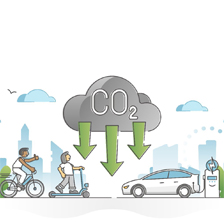
Although this is an area in which the university cannot intervene directly, the organisation of urban transport has a strong impact on university activities; nevertheless, the organisation of university activities significantly affects the demand for mobility in the Florentine area, given the high number of people involved in the various areas - education, research and 'third mission'.
This includes not only the almost 5,000 people employed in the above-mentioned roles, but also the 54,364 enrolled students, lecturers and contract researchers, visiting professors, the unstructured staff of the 54 university spin-offs and a large number of employees in outsourced services (custody, cleaning, etc.): all in all, more than 60,000 people, equal to about 16% of the population of the Municipality of Florence.
For more details: Mobility
Waste
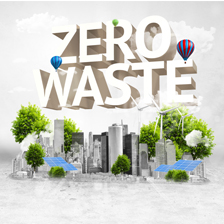
Waste and its management are a central issue for anyone concerned with sustainability. Citizens and consumers continue to produce large amounts of it when simple everyday measures or responsible consumption practices could significantly reduce its production.
The university contributes to waste management and reduction with various initiatives aimed at both citizens and its community.
For a more in-depth look at waste management data please refer to the Social Report in the sustainability section.
For more details: Waste
Green
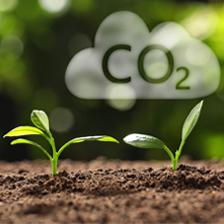
Sustainability at the University of Florence is also addressed to agricultural and green management.
The University owns extensive green areas covering more than 140 hectares, an asset that is used daily by students and staff alike, comprising approximately 72,000 square kilometres of tree area and approximately 619,000 square kilometres of garden area.
More information on this topic can be found in the Social Report in the sustainability section.
For more details: Green
Sustainability education

The strengthening of teaching on sustainability is one of the main objectives of the University of Florence.
For the academic year 2022/2023, both Bachelor and Master's degree courses are active at the University of Florence, offering courses that are closely related to sustainability development issues.
- Degree Courses
- Postgraduate training in the field of sustainable development
- Staff Training Courses
For more details: Sustainability education
The research in the sustainability field

With regard to research, the University is involved in a variety of local, national, European and international projects on the topic of sustainability and covering, for example, land use, sustainable agriculture, human health, tracking and removal of pollutants, energy generation from renewable sources, climate and paleoclimate, ethics and bioethics, psychology of sustainability, communication and engagement and many other topics.
The University is active in technology transfer both at the training level, with master's degrees and training and refresher courses, and with third-party activities, as well as through the promotion of spin-off companies, supported by the University Incubator, University/business Laboratories and National Technology Clusters. Many of these activities focus on sustainability, e.g. C02 sequestration or offsetting, microbial analysis, geological and environmental safety, food chains, sea economy, transport and energy.
For more details: The research in the sustainability field
Participation in international rankings on sustainability
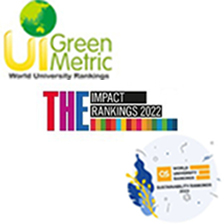
The University of Florence participates in a number of international rankings:
UI Green Metric
A green campus and environmental sustainability ranking that measures universities' environmental commitment and initiatives.
THE Impact Ranking
A ranking that considers global performance tables that assess universities against the UN Sustainable Development Goals (SDGs).
QS World University Rankings: Sustainability
A ranking that includes three performance indicators: sustainable institutions, sustainable education and sustainable research. The Social Impact category considers five indicators: equality, knowledge exchange, impact of education, employment and opportunity and quality of life.
For more details: Participation in international rankings on sustainability
Good Practice
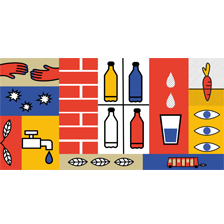
You can play your part!
Sometimes all it takes is a little daily attention to make a big contribution to the development of sustainability.
At work, at University, at home, on the move small everyday actions, which are given little importance, can make a difference.
For more details: Good Practice
Contacts
update


